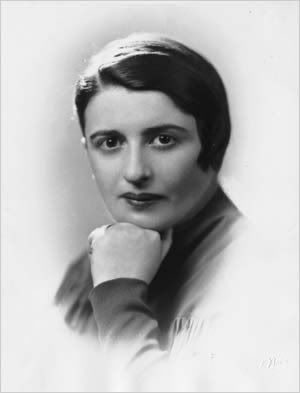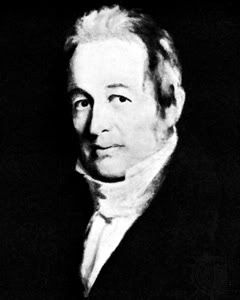
Alisa Rosenbaum had a problem.
Her novel The Fountainhead had achieved major success and she was deep into the planning of her next work, Atlas Shrugged. But the hero of the new novel lacked a name and for her the name of the hero was critical.
The name had to be strong and short and romantic. "Howard Roark", the name of the central protagonist of The Fountainhead, was perfect. Because the very name of the hero of Atlas Shrugged would be critical to the plot, his would have to be even better.
Alisa was living in California at the time where she had been making a living working in the movie industry for many years, most recently overseeing the movie version of The Fountainhead.
In the mail one day, she received a fan letter from a young Canadian boy named Nathan Blumenthal. Intrigued by the quality of the letter, Alisa invited Nathan to her home for a visit. The visit lead to friendship and more and to Ayn paying a return visit to Nathan's home in Southern Ontario.
It was during that visit that Rand chanced upon the name of the founder of the neighbouring town of Guelph Ontario, Scottish novelist John Galt.
For her the name was perfect, strong and original. Alisa herself had chosen a new name, Ayn Rand, after immigrating to America from Russia. Nathan Blumenthal would also rename himself Nathaniel Branden, and go on to write a series of best selling books on Psychology. The proper name conveying the proper image was critical, especially for the hero of Atlas Shrugged.
However, it is doubtful Rand knew much about Galt, whose name she appropriated. Her Galt would be the enemy of religion and mysticism in general. Her Galt would be the champion of reason, individualism and Laissez-faire capitalism.
John Galt, the Scottish novelist, was a religious man who built the Town of Guelph Ontario around the church. The hero of his most successful novel was a Scottish Parson. A failed businessman, Galt's novels were often light and humourous.
He was also, philosophically, an advocate of utilitarianism, the idea that the moral worth of an action is solely determined by its contribution to overall utility, that is, its contribution to happiness or pleasure as summed among all persons. It is a form of consequentialism, meaning that the moral worth of an action is determined by its outcome—the ends justify the means.
There were few philosophical ideas that came in for more scathing criticism from Rand than Utilitarianism.
For those with a love of irony, you've just struck the mother-load.
*****************************************************
Images courtesy of Photobucket
2026 Project 365 – Week Three
19 hours ago



